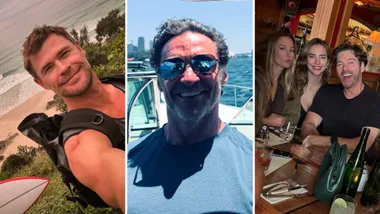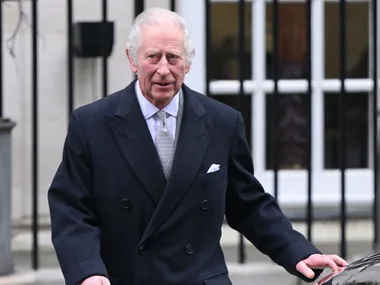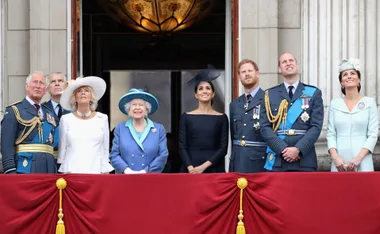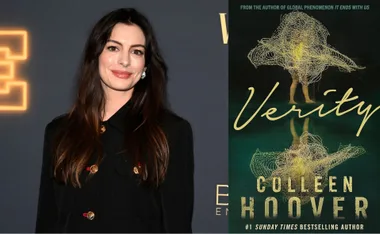Merridy Eastman, actress and former Play School presenter, talks about There’s A Bear In There (and he wants Swedish) (Allen & Unwin), a frank, funny account of her time spent working as a receptionist in a Sydney brothel.
QHow did the idea for the book come about? A When I first started working there I told everyone because I thought it was so interesting and unusual and I found myself almost holding press conferences at dinner parties. Women especially would almost knock me off my seat with questions. Men were curious too but they didn’t seem to show the same overt, insatiable thirst for knowledge. Whereas the questions came thick and fast from my female friends.
And I guess that’s why I took the job in the first place. I knew that like many people, I was fascinated. If you know where there is a brothel, you can’t drive past one without looking at it and without a million thoughts going through your head. All those questions had to be answered.
Q I assume the other reason for taking the job as a receptionist in a brothel was that there was also a lack of acting work? A Well, I wasn’t getting any.
Q Obviously you thought reception work was something you could do? A Yes. Outside acting, I had no qualifications whatsoever to do anything at all. Not even waitressing.
Q Up until now, you’ve never done any jobs outside acting? A I’ve been very lucky. Always had just enough work to get by.
Q So you were attracted to the job by the idea that it might be an interesting experience? A I must say the writer in me was jumping up and down. I’d never written anything, except a sit-com with a friend a few years ago. When I realised that I could be working in a brothel and meeting prostitutes I just thought, ‘I’m sure there’s a film or a play or something’…the last thing I thought about was a book because I’d never even written a short story, let alone a 1200 page novel.
Then once I started telling stories about what was happening, everyone said ‘you must write this down.’ Even my parents were saying it. And I wrote two letters, one to a documentary maker who is a friend and another to an actress friend. They were very long, about 6 pages and they wrote back saying it’s not just a letter, you have ‘something’ here.
Q So you decided to tackle it? A To tell you the truth I decided to write a feature film. To provide employment for me and all my acting friends. I was going to star in it as me (giggling). And all my wonderful actress friends who are out of work and there are many of them, were going to have jobs and this was going to be this great opportunity for all of us. And with this noble cause of breaking down the stereo-type of everyone’s pre-conceived notion of the sex worker, it was going to be liberating for everyone. And I started to write a screenplay and it was just (laughing) shocking. It was appalling. I didn’t know what I was doing, I was totally out of my depth. And then around that time, I thought maybe I should write it like a long letter to a friend. And then I will make it a screenplay or sit-com. But I still didn’t ever imagine it would be a book. I never dared think I was capable of that. It was going to be some kind of script.
Q Your manuscript finished up the centre of a bidding war? A Just for a few minutes. I looked at my bookshelf and it was full of books published by Random House and Allen & Unwin. Sent 75 pages of it to both of them. Within a week they both replied and both were interested. I was beside myself, couldn’t believe it was happening to me. I thought any minute now someone is going to come up to me and say I am sorry Miss Eastman, it’s all a big joke. There’s the camera.
Q Next you got an agent? A He wanted to send it off to everyone, but by this stage I was well into conversations with both companies and they were so lovely, I thought it would be – I don’t know it just seemed greedy to me. I was pleased enough that two great publishers were interested, but my agent talked me into sending it off to Pan Macmillan because he had a contact with them and they doubled the other offers within two days. So I had three offers. It was incredible. I couldn’t believe it. Friend of mine said well of course it’s because it’s about you being a Play School presenter working in the sex industry and he hinted it was to do with the fact that it was easy to market because of that angle. I then went into a spiral. He had no idea he’d done it, but he completely deflated me.
I started work at the Sydney Theatre Company, doing Morning Sacrifice the day I had to make the final decision. And I sat in my car at 6pm with my agent saying you have to say yes or no to one of them. I remember it was pouring with rain, and I remember thinking you’re working at the STC, you’re going to be a published writer, my life just couldn’t be better … and I just couldn’t have felt worse.
Q How many years were you a presenter on Play School? A Only about three, but they repeated it forever. It seems like an eternity but I think it was 1986-89. I absolutely loved it, I was so upset when they got rid of me. I was heartbroken. I wrote a letter asking “why?”
When I asked the executive producer why I was sacked he said “well you didn’t have a very strong singing voice.” When I auditioned they said one of the things we love about you is that you don’t have a powerful singing voice and the kids love that because they don’t have great voices. Great! I thought, I can be a pretty awful singer and not worry about it.
Q Now you’re playing neurotic Eileen Unn in Seven’s Always Greener? A She is a very sad, neurotic, terribly unhappily married, real estate agent’s wife. I’m married to Andrew Clarke and he’s a philanderer and womaniser and everything.
But I’m pretty hideous myself. Instead of getting out of the situation I stay there and wallow in self pity. It’s just an ugly relationship. I’m passive aggressive, hideous – I hate me! She’s the most unhappy person I’ve ever played and I love taking the wig off at the end of the day.
And she’s a prude which I find hilarious. Wait till the publicity for this book comes out – it’s the last thing this woman would ever, ever do. She probably doesn’t know what a brothel is.
I wear a big bright red wig at first in the series, but then my character has a make-over and I turn into a sleek brunette.
Q So you’re happily employed in a big TV series? A Yes, that’ll keep me away from brothels (laughing). So that’s till next year and I love it. It’s a great show, I’ve never known such a warm cast, production team and crew. Never worked in such a warm and happy environment and there are so many good actors in the cast. And the writing’s good.
Q Where were you born and what do your parents do? A Canberra. My mother has always been into children’s literature. She was a children’s book librarian and then a reviewer and then did her MA a few years ago. Dad’s been at the ABC for 50 years, retired now. He was an announcer on radio, a presenter on TV and a producer. And then he went into management. He’s published a book too, on the stately old homes of Hobart. My sister lives in London and is a financial correspondent for the BBC. She’s on TV all the time in a little pink suit talking about the Dow Jones. She’s 3 years older. My little brother is also in London and he’s an actor and writer who performs in one man shows.
Q Schooling? A We moved around from Canberra to Rockhampton, from Brisbane to Hobart and went to State schools until we got to Hobart and then I went to a Quaker school called Friends. And I failed my HSC. My mother will kill me for saying this, but I did and I lied about it my whole life. And now that I’ve written a book I feel I’ve recovered. I went straight from school to NIDA where I lied to them about my HSC too.
Q Star sign? A Sagitarrius
Q Age A 40
Q And you dream that one day…? A I might be a very good actress, not famous, just good.
Q What kind of books do you like reading? A Robert Dessaix, Bill Bryson, a huge variety. Books that make me laugh. I love, A,S. Byatt who’s not funny at all. Memoirs Of A Geisha is one of my favourite all time books. It’s a great story so well told, a man tells it and you can’t believe it’s a man who wrote it, he does it so convincingly.
Q Define what you like about acting? A I’m incredibly shy and I think I find it good therapy, it forces you to be an extrovert, to stand up and perform in front of 800 people (in a theatre) at a time. I love good writing. Like Shakespeare and other great playwrights.
Q Have you been surprised at the fuss your book created? A I’m surprised. I knew that it was witty, entertaining and funny and interesting, but when people tell me they can’t read it on public transport because it makes them laugh out loud so much. That’s my dream, to make people laugh. At the moment my favourite writer is Bill Bryson who makes me laugh out loud. And Clive James.
Q How long did you work in the brothel? A Eleven months in 1999.
Q You hid your true identity as an actor when you first started at the brothel? A Yes, I would have told them sooner had I realised what effect it was having on them. A lot of them recognised me, they couldn’t remember where from. Their anonymity is crucial – they all have made up names and are very secretive about who they really are – so seeing this familiar face made them feel worried that I was a friend of the family or something. When it finally came out we were all so relieved.
Q What were your impressions of prostitution before you worked in the industry? A Unconsciously I guess I had this notion of abused and damaged women and it was a very sad image. It was based very much on the prostitutes you see in films and television and I now know that that’s just another stereo-type…
Q Or the ones you see standing in Kings Cross? A Well…I even look at them differently, even though I never worked with those girls, I look at them differently because I met so many people who are sex workers who have done that (stood on corners) and they aren’t damaged.
Q What’s your impression now of the women who work as prostitutes? A I’m overwhelmed by their courage. The whole time I was there I got to know them pretty well and they were a pretty gutsy bunch. No-one was doing it because they were forced to. For every one of them, it was a very willing and conscious decision because she could handle it, she could do it. And I found that fascinating because I couldn’t. As receptionists I think we all thought about it a lot, because when you’re sitting in a little room sending out girls for $700 an hour and you’re earning $12.50 it crosses your mind.
I think they’re extraordinary because it’s a confrontingly personal service and the vulnerability they must feel, providing a service that requires them to be naked and to let people have such access to their bodies, I don’t think I’ll ever quite understand it and I never try to explain it in the book either.
But I have just such respect for them because they made an effort to maintain their own self respect. There was an incredible amount of support from one to the other and they were a very affectionate, supportive group of women.
Q And not all the kind of women you’d expect? A No, there was a stockbroker and a financial adviser, a journalist, a couple of nurses, university students, women who ran their own businesses, a hairdresser and a manicurist, and a lot of them were quite bright. That sounds patronising but I was surprised at the level of education and even without any education, the level of intelligence. Like any profession there was a great variety of girls. I was surprised at how many were from good homes and had been to private schools and had tertiary training.
Q So it’s not at all what we imagine – or our image of the sex industry is incomplete? A That’s right. There was one girl who had a drug problem. One who was abused by her boyfriend. There were 60 girls all together and that’s only two I can think of who belonged to that stereo-type of what you’d expect of a prostitute.
Q I was surprised at what little protection they had? A Yes that was frightening. Especially the escort side of things, sending girls to private homes in the suburbs a long way away and they’d just be dropped off. We’d have our driver stay if possible out the front and wait till they were finished, but more often than not, it was a busy night they’d have to come back. And all that girl had was a mobile phone… So it takes a lot of courage and faith…they have great faith in men, and they’re generally right to have such faith. Generally they were treated very well. There were definitely times when they weren’t.
Q Did the experience change your attitude to men and sex? A I was warned by friends that I would become cynical about men and that it would be a very bad, negative experience in terms of my perception of men and sex. And I think if anything it was the opposite because I just feel so much more respect for a man who uses a discreet and professional service and books a woman for one hour, and uses safe sex rather than go to the Marble Bar and pick up possibly one of my friends and then never call them again.
I think it’s taking responsibility for your actions in a way that a lot of men that I’ve known, don’t. I think it’s incredibly sensible and practical. I wouldn’t feel happy being married to a man who was using that service but at the same time I would prefer he was doing that rather than having a fling with a friend of mine or something. I think it’s the way to go if you’re going to have casual sex. Unless you can pick up someone at the bar who wants the same thing and the chances of that are not very high. It’s actually much more fair and decent to pay for a sex worker.
Q Some of the men in the book don’t come up very well? A Well, yes, there are some horrible stories in there.
Q Maybe I’m being overly judgemental about it. A No, I suspect people do feel like that. Someone I know had a friend who worked in the industry and she came away from it not liking men very much. I think maybe I had a unique reaction to it all. I think I was a bit swept up in the girls themselves to even notice the men. Because I didn’t really pay much attention to the clients and I couldn’t really write a book about them. My book’s about the girls. The men didn’t interest me all that much.
Q Did the job liberate your attitudes towards sex? A I guess I really was liberal anyway, but to be honest I didn’t really think about it in a sexual context.
Q But that was what it was all about! A I know, I know (laughing)… but I didn’t apply it to my life.
Q But you did end up having a relationship with the driver? A Yes!
Q I liked the conversations you had with yourself about whether he was socially acceptable or were you being a snob because of his job and his liking for things like playing darts at an RSL Club? A Because I was writing about all the women, I thought if I’m going to do that I should put myself on the line, I should balance it and everything that happens to me in the book is true.
I just kept thinking it’s because he plays darts at an RSL Club and you’re a private school girl, get over it! You can’t believe in all these good causes and be passionate about social justice and then live your life in this hypocritical way.
Q I guess the fact that you’ve worked on Play School adds to the shock value because people associate a children’s show with purity and innocence, someone who is whiter than white? A You may as well have a priest’s collar and wings. That’s right. And being responsible for children, you can only have such a position of working with children if you’re very responsible and have no record of working in a brothel at all. I could never go back to Play School now.
Q Do you expect any flak? A I don’t but if it happens I’ll take it on the chin. I feel very proud of what I’ve done. If it was damaging to the children who watch Play School I’d worry, but seeing none of them are capable of reading a book… and hopefully, most people will see the funny side.
Q What did you set out achieve when you wrote the book? A I think I wanted to challenge everyone else’s pre- conceived ideas of sex workers, the way mine had been challenged when I walked through the front door. Because that was the big surprise – that’s what I was writing to everyone about, talking to everyone about, saying ‘no, they’re not like that at all, these women are quite amazing, they are like you and me.’ I wanted to humanise them I guess. I don’t see myself as some sort of God who do that but if I can help…
Q Do any of them know you’ve written the book. A No. I changed a lot of the details, I couldn’t go back and talk to them about writing the book because prostitutes don’t want people gathering information about them and writing about them. I think the fear factor would have been huge. That’s why I decided to write about myself with great candour and disguise their identity as much as I could.
Q Are you going to let them know just before the book comes out?A I don’t know. In my fantasy, Sapphire and Antoinette who were my favourites, know about it and everything’s great and I cry tears of joy because I am so touched by them, but I’ve never done anything like this before and I don’t know if it’s upsetting…and I think something like this might take time. If they ever hear about it, they might be horrified at first and then read it and think it’s okay. It might be best to leave it.
Q Has anyone talked about the risks or danger involved? A I keep trying to bring it up (laughing), can I get in car without it blowing up? I hope I’ve hidden everyone’s identities enough. And more than anything, it’s a funny book. It’s not a Four Corners expose, it’s about Merridy Eastman’s response to this extraordinary world she finds herself in. Hopefully they see it that way.
Q The owners, Kitty and Boris, were horrible. A She was frightening, we were all scared of her. Yet I was so charmed by her at the initial meeting, she was so lovely and so beautiful. Everything about her too, although the surroundings were a bit over the top.
Q And she turned out to be a tyrant, who didn’t care at all about the women? A No, not at all and I’ve written that.
Q She’s driven by money and greed and nothing else? A That’s right. She’s not in the office, she’s just this voice on the phone. He was in our faces all the time but because he’s confronted on a nightly basis with these women and they’re real and they have real problems, I saw him crack occasionally and I saw signs of great humanity and kindness. He was SO charming once he decided you were okay and I felt quite fond of him in a strange way. I thought I hate what you think of women in general, I hate the things you say about your girls, but I also saw him as being a victim of his own circumstances.
Q Kitty is also going to find out that her husband has been stealing from her when she reads your book? A That keeps me awake. I don’t know what’s going to happen there. That’s what worried me when I wrote the book.
Q What about getting used to those conversations you had to have with strange men on the phone about their needs and special requests? Did you use you’re acting ability to get through scenes like that? A Definitely. To sail through so it wouldn’t offend me, that was a bit of a challenge, I found all that hideous misogynous attitude fascinating from an anthropological sense… how fascinating that a man would talk to a woman about other women in this incredibly degrading and ugly way and it doesn’t worry them, doesn’t even cross their minds that it might offend me because I’m just another one of them I suppose, or don’t we all share this view of prostitutes that they’re just dirt? That was the attitude and I found it extraordinary. I think I was too amazed and interested to be offended. I was offended, but I felt like saying well, tell me more Bruce, or Gary To be fair there were also some incredibly gentle and polite and respectable men …visiting businessmen, men in Sydney who called from their homes on a regular basis. I suppose I haven’t written about them because they weren’t so interesting. I didn’t go home every night and think ‘oh my God, all men are bastards.’ It’s like the girls, there’s every kind of man out there. The fact that the girls generally had a good time and are treated well says a lot too.
Q The book tells us that not only one type of woman would become a prostitute – that there’s no great divide between ‘them’ and ‘us?’ A I’m glad you say that because that’s what I wanted to say. When I look at my girlfriends, I don’t know who has done this – I don’t trust anyone in high heels at all, now. Since I’ve written this book, two of my lesbian friends have told me that they’ve done this. I feel honoured to have been told.
Q That was the other interesting revelation in your book – the high percentage of lesbians who work as prostitutes. A That’s another stereo-type that was challenged in me. I didn’t know that lesbians did this, I didn’t expect to meet any in a brothel. Is it because they’re gay that they’re drawn to it? Because they can disassociate, it’s an easier job. Or did the job make them turn towards intimacy with other women because you can imagine that’s possible too, having enough of men all day and night, needing something completely different?
Q What percentage in that brothel would have been lesbian? A About half of the 60 girls.
Q Would you ever work as a receptionist in brothel again – although you’ve blown your cover now, haven’t you? A Yes, and that’s a pity because I would love to go back to that between acting jobs. Rather than waitressing.
Q Really? A Yes (laughing) but hopefully I’ll be a writer now between acting jobs instead and I won’t have to worry about it.
Q I can’t believe that you’ve said that because while sitting around the table talking to the women was fun and illuminating, there were some pretty sordid aspects to the job. A Yeah, yeah… I am just wondering how much I really meant what I just said. I have thought about it during a period of unemployment last year. I don’t think I could ever do a brothel again, but I could work on the phone for an escort agency and be with the girls coming and going, get to meet those girls again. I think I got a bit addicted to them – the women.
Q To what aspect of their lives? A I guess I was a bit attracted to them, not in a sexual way but I guess there was something I never quite found out and I’ll always be attracted to them until I can understand how they can do it. And they were generally, just great girls. I had some of the funniest nights of my life in that kitchen, sitting around thumping the table, laughing. Maybe because of the nature of the job, they desperately needed an outlet as well, and so were full of funny stories.
It wasn’t always like that. There were nights when it was just hideous and you could cut the air with a knife because two girls hated one another or business was bad. I just found them such an intriguing bunch of girls – women. Guess I always will.
Q But initially, you were terrified working in a brothel? A I couldn’t believe I kept on going back. because every time I left I’d think, ‘right I won’t be coming back, I can’t do that.’
Q Why did you go back? A I had no other work and I was fascinated by the girls and I wanted to see if we could get on and if I could find some kind of connection. And if I could, I thought, ‘boy, the things I could learn from sex workers.’
By and large, I got the impression of the women just doing what they had to on as if on automatic pilot. They would come back from a booking and not look at all changed by the experience. I would ask ‘well, how was that?’ They’d just look at me and say, ‘you just don’t ask that Merridy.’
Q They weren’t at all ashamed were they?A No I don’t think there was any shame at all. They were so relaxed about it.
Q Do you think attitudes to prostitution say something about people being uptight about sex? A I was definitely uptight, because when I walked into that place I thought they must all be so damaged to be able to do that, then I realised how un-damaged they were. And how together they had their lives. Generally, the men who came to the door were nice and I’d introduce them and they’d go upstairs together – it was very straightforward and quite pleasant.
Q What would say to someone thinking about working as an escort. A I wouldn’t encourage them, I still wouldn’t do that because I knew how they were holding it together and that was pretty well but I didn’t get to know any of them that intimately to know exactly – and that’s what will always worry me, I guess, and is why I’m so curious about them, still.
I don’t know about the long term affects. Or how they felt at the end of the night. It couldn’t have been too bad because they came back the next night. But when the receptionist Leonie crossed to the other side I was so worried about her because she was so young and she wasn’t very bright.
Q In the book the women seem to make a lot of money? A If you’re a beautiful young girl there is a lot of money to be made, that is for sure. The girls who were most comfortable and secure and confident were not the young beauties, but the ones in their 30’s who’d been doing it for some years and had come to some kind of decision or acceptance. I would definitely hesitate to recommend it to anyone in their 20’s. There was a maturity about all of my favourite girls.
Q Did you believe the ones who said they’d retire young and rich? A I think Shelby the financial consultant had a huge plan and she was so disciplined, everything about her was immaculate and organised. And she definitely had a 5 year plan. And when she talked about money she lost me, she was like an accountant. Genevieve who was crying all the time, she was making 4 or 5 thousand a week. And Pandora the beautiful young blonde with the smack habit who still seemed to be able to function. She made a lot of money. A couple of the Asian girls who were students made a lot of money, too.
Q Do you think prostitution will always exist? A Yes. Sex will always sell.
Q And a final word to sum up the experience? A Illuminating. I feel so much younger, I feel there’s so much about the world I just don’t know. So much waiting to be explored. It was like having a trip overseas.











